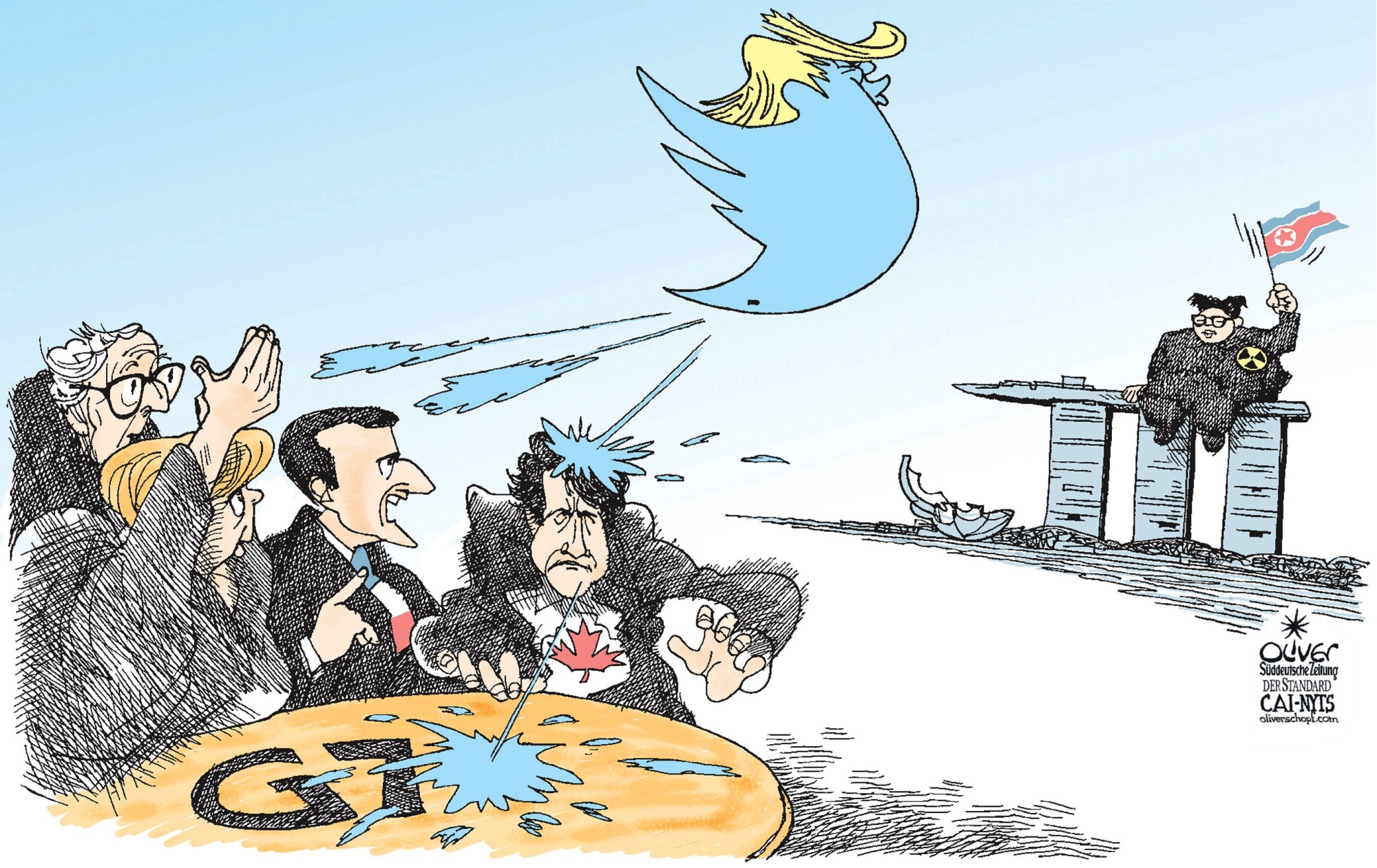At the Group of Seven summit in Quebec, Canada, in June, U.S. President Donald Trump opposed a draft of the Group of Seven joint communique that endorsed "a rules-based international trading system," and then left the summit early. From aboard Air Force One en route to Singapore for his summit with North Korean leader Kim Jong Un, Trump tweeted: "Sorry, we cannot let our friends, or enemies, take advantage of us on Trade anymore. We must put the American worker first!" Trump suggested the U.S. might withdraw from the joint communique, which pledged to "continue to fight protectionism." He also threatened to "look at Tariffs on automobiles flooding the U.S. Market!"
In Singapore, Trump continued with his ego-driven diplomacy and ended up falling into North Korea's fake denuclearization trap. Trump's acknowledgement of North Korea's status as a de facto nuclear power, and the prospect that the U.S. might engage in disarmament negotiations with North Korea, are developments that could fracture American alliances with South Korea and Japan and destabilize Northeast Asia. The liberal international order (LIO) has finally reached a crisis point.
The LIO refers to an internationalist order based on the principles of the rule of law, multilateralism, human rights and freedom. At the top of the LIO has been the postwar Bretton Woods system, which was developed primarily by the United States and encompassed the General Agreement on Tariffs and Trade (the predecessor of the World Trade Organization), the International Monetary Fund, the World Bank and the G7.



















With your current subscription plan you can comment on stories. However, before writing your first comment, please create a display name in the Profile section of your subscriber account page.